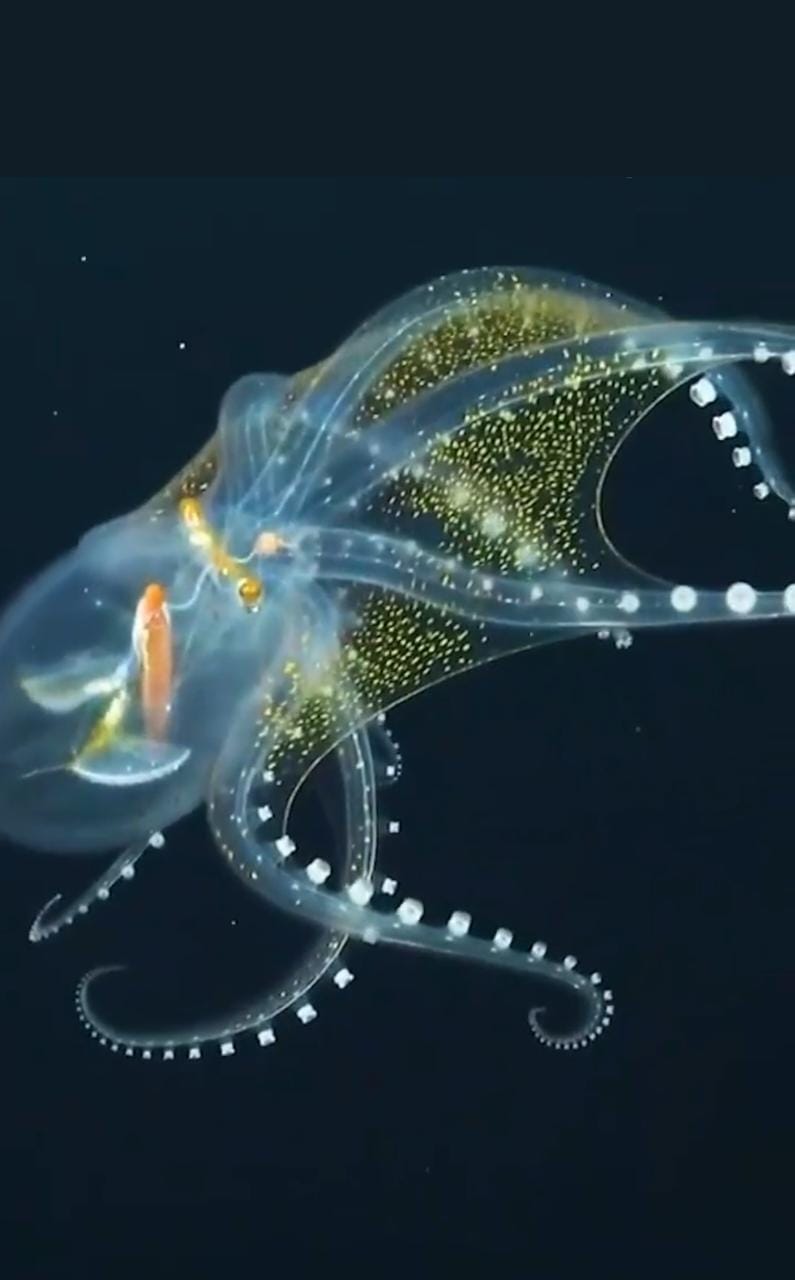The Oxygen Project posted a video on Twitter that shows a rare species of glass octopus, Vitreledonella richardi, floating in the sea. The video shows a transparent octopus, with glowing yellow spots and its internal organs clearly visible.
The video was captioned, “The glass octopus (Vitreledonella richardi) is a very rarely seen cephalopod found in tropical and subtropical waters around the world. These beautiful creatures are found in the deep sea where sunlight doesn’t reach.”
The video has amassed more than 19,000 views. Upon watching the video, Twitter users expressed their astonishment in the comment section of the video. A user wrote, “The donation of the development of life is seen in the sea itself.”
Also Read: Researchers find giant phantom jellyfish, all you need to know
Another user wrote, “They’re also so clear as glass that you can see their nerves and digestive tract. Their appearance is camouflaged, and this ability will protect them from attack.” “Wow! What a great job you guys have”, read another comment.
Glass octopuses were not discovered until 1918, according to the International Union for Conservation of Nature. They are usually found in tropical and subtropical regions in the vast ocean. The creature lives for about 2.5 years. It has a mantel of around 4.3 inches or 11 cm in length.
The total length of an adult specimen is around 18 inches or 45 centimeters, Oceaninfor reported. It has 8 tentacles.
According to the Ocean Conservancy’s official website, the octopus is very rarely seen as it is found at a depth of around 3,000 feet, where even sunlight cannot reach. The video’s original source can also be found on the website. The video is reportedly captured using a remotely operated vehicle (ROV), named SuBastian.
Also Read: 5 food items that can be fatal for your pet
More than 80% of the ocean still remains unexplored, according to National Geographic suggests. Last year, the glass octopus was spotted by an expedition team abroad at the research vessel Falkor, run by the Schmidt Ocean Institute, as per India Times.







